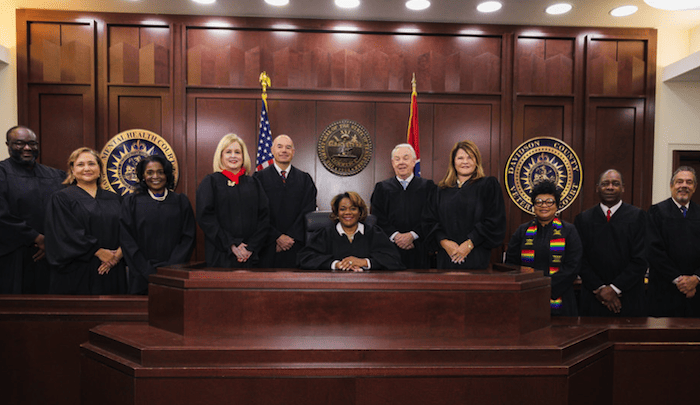A Two-Decade Dispute: How a Turkish Islamist Sect’s Mosque in Leonding Sparked Legal and Political Controversy
- Mahamunimodi Team
- Sep 1
- 4 min read

In Leonding, Upper Austria, a mosque and Koran school linked to a Turkish Islamist sect have been operating for years inside a commercial property on Welserstraße. Despite the municipality’s confirmation that the property is being used illegally, the landlord remains entangled in a costly and exhausting legal battle with the association that refuses to vacate the premises.
The Beginning of the Dispute
The saga began nearly two decades ago when four men signed a lease with Siegfried Meinhart’s real estate company, M+M Immo GmbH. The tenants had originally presented their plan as the establishment of a private club occupying two floors of the building. However, Meinhart soon discovered—by chance—that they had registered an entity called the “Islamic Assembly and Educational Association.”
From that moment, the property became a constant source of friction. Parking, in particular, became a flashpoint. Association members often occupied all available spaces, leaving customers of other businesses without access. Disputes frequently broke out. In March 2023, a hired security company recorded one such altercation in which an association member reportedly declared: “The kuffar (unbelievers) have no say over me and my brothers; we have the right here.”
Other tenants, weary of the tensions, chose to leave. One business owner claimed that after an argument about a blocked exit, his new van lost €20,000 in value overnight due to vandalism, though no direct link to the dispute could be legally proven. Harald Kogler, managing director of the wellness center “Delfin,” stated that his company relocated in 2010 partly because of the mosque’s presence.
Legal Dead Ends and Financial Burdens
For years, Meinhart sought to evict the association, arguing that a mosque had never been part of the lease agreement. However, his efforts repeatedly failed in court. In January 2023, the Traun District Court dismissed his eviction suit, bizarrely reasoning that the presence of a prayer hall or Koran school did not constitute a sufficient breach of contract under tenancy law. Meinhart was left with €40,000 in legal expenses.
The Leonding Municipal Council, too, dismissed concerns. When the issue was raised in May 2023, local officials cited information from the State Office for the Protection of the Constitution and Counterterrorism, which concluded that no mosque was operating in the building and that the association posed no security risk.
The Sect Behind the Facade
Closer examination, however, paints a different picture. The association had clear links to the Turkish Ismailaga sect, a fundamentalist movement with a reputation for extremist teachings. Although no official signage displayed the group’s name, a large disc-shaped logo on the building once bore the Turkish inscription “Ismailaga Avrupa – Oberösterreich Subesi” (“Ismailaga Europe – Upper Austria Branch”). The words “Darul Kur’an Medresisi” (Koran school) were also visible through the glass walls until they were discreetly removed following a court hearing.
Inside, the facility bore unmistakable features of a mosque: a minbar (pulpit), foot-washing facilities, and carpets oriented toward Mecca. Shelves contained religious works by Ismailaga founder Mahmoud Ustaosmanoglu, who preached an exclusivist Sunni Hanafi Islam, opposed secular education, and insisted on strict veiling for women. His organization’s official website, still active, openly displays anti-Semitic rhetoric, describing Jews as corrupt and dangerous.
A map inside the premises even appeared to chart the sect’s European expansion, with branches in Vienna and Innsbruck highlighted.
European and Austrian Blind Spots
Despite these signs, authorities in Austria and the EU largely overlooked the group’s activities. In 2022, the Ismailaga Youth Foundation Yavuz Sultan Selim received €31,455 in Erasmus+ funds for anti-discrimination workshops, despite its ties to Turkey’s Islamist network. Only after pressure from the European Parliament did the European Commission demand repayment—yet it remains unclear whether the funds were ever returned.
Germany, by contrast, has classified Ismailaga as an extremist organization hostile to constitutional order. Austrian authorities, however, continue to provide little information. The Ministry of the Interior insists it cannot comment on such groups, and unlike German intelligence reports, Austria’s own does not mention the sect at all.
A Turning Point: Fire Safety Violations
Ultimately, what exposed the mosque’s illegality was not its political or religious affiliations but building regulations. In April 2025, a fire safety inspection conducted under police protection revealed that unauthorized construction had been carried out to accommodate the mosque. By July, the municipal building authority officially rejected the project, ruling that a prayer hall could not be considered part of a commercial-use zone.
Yet even with this ruling, the landlord finds himself trapped. Legally, he is required to restore compliance, meaning he must spend further money on architects and legal filings—despite never consenting to or desiring the mosque in the first place.
The Ongoing Struggle
While Meinhart hoped this official rejection would finally allow him to terminate the lease, the association shows no intention of leaving voluntarily. Friday prayers continue to be held, and its chairman, Yilmaz Gürsel, refuses to answer journalists’ questions. Lawyers warn that since one eviction case has already been dismissed, a new lawsuit must rely on fresh evidence to succeed.
For Meinhart, whose faith in the legal system has eroded over the years, the ordeal has become a personal battle against both bureaucracy and extremism. What began as a simple commercial lease two decades ago has turned into a case study of how Islamist networks exploit loopholes, how European institutions overlook warning signs, and how landlords can become powerless in the face of legal technicalities.



Comments